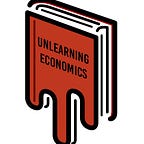Why Blame Macroeconomists for Crises, but not Epidemiologists for Pandemics?
With the outbreak of covid-19, an event largely unrelated to economists and to which economists have produced sensible responses, it seems like a good time to rehash old criticisms of the discipline. I’ve wanted to write something like this post for a while but was prompted by a comment from a certain blue-check journalist from the Wall Street Journal. Riffing on a quote from an epidemiologist in a Times article (gated), Mike joked “Wow, epidemiologists really are the new economists. “All models are wrong, just some are more wrong than others” is something I’ve only previously heard from people trying to defend DSGE.” Macroeconomists Christoph Thoenißen has made the same point, albeit in a more po-faced manner: “As a macroeconomist, I look forward to contributing to the ‘Rethinking Health Economics‘ agenda in response to health economists’ failure to predict recent virus-related falls in share prices.”
This does prompt a fair question: why did macroeconomists get so much ire for the financial crisis in 2008? Bad things happen in many areas: the economy, health, the physical world; yet only the first area provokes intense public criticism for those tasked to understand it.
To start, economists have a lot of policy influence. They staff central banks, competition authorities, international financial institutions, and generic government departments which evaluate policy in general. Clearly, it is nonsensical to think that physicists are responsible for the physical world; but just as importantly, epidemiologists seem to have limited influence over health instituions. The subtext of a lot of economics criticism is “you guys said you had the economy under control and we believed you, but will you just look at this mess!?”
And economists did think things were under control before the crisis, owing to their own efforts. Robert Lucas famously claimed in 2003 that “the central problem of depression prevention has been solved”. I’ve seen revisionists say that #actually he was right, because a depression was prevented, but even granting this as true it was only through a series of last-gasp efforts to restrain an unexpected downturn. If you read the address, it’s clear he thinks that the stabilisation policies precluded such a possibility and what’s more, he was following standard macroeconomics at the time. For this reason it wasn’t just Lucas; even at the start of the crisis, equilibrium thinking led major institutions to play down the extent of the problem. Economists just didn’t have the possibility of such a crisis in their mental framework.
To this end, economist David Chivers found an article by a Nobel Prize winning biophycisist Michael Levitt (!) playing down the coronavirus, but the funny thing is that if you read the article, his predicted decline in China actually happened. Still, he could be fairly accused of being too sanguine about things by saying “we’re going to be fine”, which has echoes of Keynes’ “Economists set themselves too easy, too useless a task if in tempestuous seasons they can only tell us that when the storm is long past the ocean is flat again.” If you can show me such an attitude is widespread in epidemiology or biophysics, I’ll agree they have a problem. If you can show me it has influenced policy on any serious scale, I’ll change my name to Unlearning Epidemiology.
One thing I would caution epidemiologists against as they face increasing public scrutiny is to avoid some of the bad arguments I’ve seen from economists. For example, Tom Sargent’s flagrant lie that “It is just wrong to say that this financial crisis caught modern macroeconomists by surprise” when he wrote a 2008 (!) paper arguing investors were overestimating the likelihood of another Great Depression. Another would be the insistence that economics just isn’t macroeconomic forecasting, a point put forward by Chris Auld for example, which is akin to saying that meterology isn’t about hurricanes or epidemiology isn’t about pandemics. If epidemiology has had a blind spot for pandemics — and I don’t know whether or not this is the case — it needs to be acknowledged and remedied without disingenuous distractionary tactics and appeals to authority.
